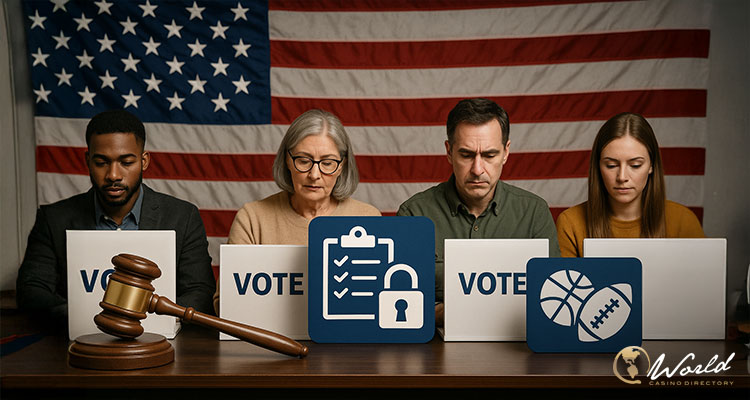The American Gaming Association (AGA) has published new research indicating strong public sentiment that sports event contracts should not be treated as financial tools, but rather as gambling products requiring regulation. These contracts, commonly offered on prediction market platforms, allow users to stake money on outcomes of future events, such as the results of a sports game.
The survey, conducted by YouGov between August 1 and 8 among 2,025 registered voters, revealed a clear preference for aligning sports event contracts with the same legal standards that govern sportsbooks. The margin of error was listed at plus or minus 2%, with higher variation in subgroup results.
Majority Recognize Event Contracts as Gambling
An overwhelming 85% of respondents classified sports event contracts as gambling rather than financial instruments. Only 6% described them as more comparable to a financial product. When given examples, such as staking a small amount of money on whether the New York Yankees would win a particular game, most participants labeled the transaction as a bet akin to sportsbook activity, not a commodity trade.
Respondents also expressed concern that companies running these markets are exploiting gaps in the law. According to the findings, 70% of Americans believe prediction platforms are operating as unlicensed sportsbooks by exploiting regulatory loopholes. Within that group, 44% strongly agreed with the statement, while 26% somewhat agreed.
Bill Miller, AGA President and CEO, emphasized that the public’s view is clear in the regulator’s press release: “This research has made it clear: Americans know a sports bet when they see one—and they expect prediction markets offering sports event contracts to be held to the same rules and consumer safeguards as every other state-regulated sportsbook.”
He further stated, “This underscores the need for the CFTC to enforce and uphold its own regulations that prohibit gaming contracts, and for Congress to use its oversight power to ensure prediction markets are not used as a backdoor for gaming.”
Public Support for State and Tribal Oversight
The survey results underscored broad support for state-level regulation rather than federal financial oversight. About 65% of respondents said they want state and tribal gaming regulators to manage these contracts, while only 35% pointed to the Commodity Futures Trading Commission (CFTC).
In addition, 84% of Americans, and 69% of those who actively place sports bets, agreed that sports event contracts should only be offered through state-licensed sportsbooks. A similar percentage, 69%, said individual states should decide if such products can be made available locally.
The AGA stressed that this finding reflects strong alignment with the model already used in sports betting, which is currently legal in 38 states and Washington, D.C.
Respondents consistently signaled that accountability should extend beyond licensing. Nearly two-thirds, or 64%, said that both regulators and operators should provide responsible gaming protections to consumers. Only 36% felt the responsibility should rest solely with individual players.
The survey also revealed resistance to platforms continuing operations without proper licensing. Just 16% supported the idea of allowing these markets to function without sportsbook approval, while 84% said the companies must obtain licenses within the states where they intend to operate.
The AGA summarized the research by stating that Americans overwhelmingly view sports event contracts as gambling and expect them to be subject to the same safeguards and oversight that apply to the broader sports betting industry.


